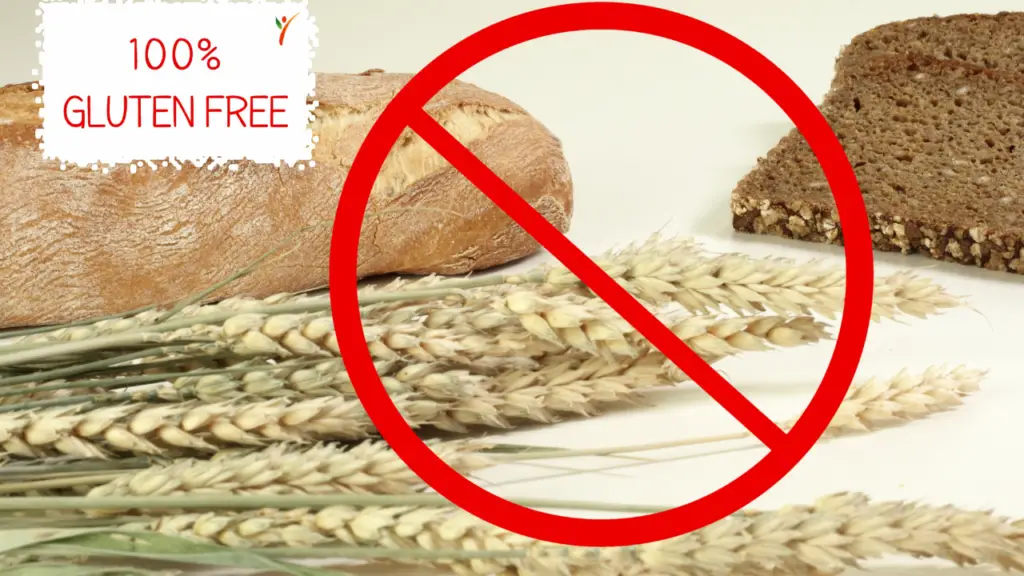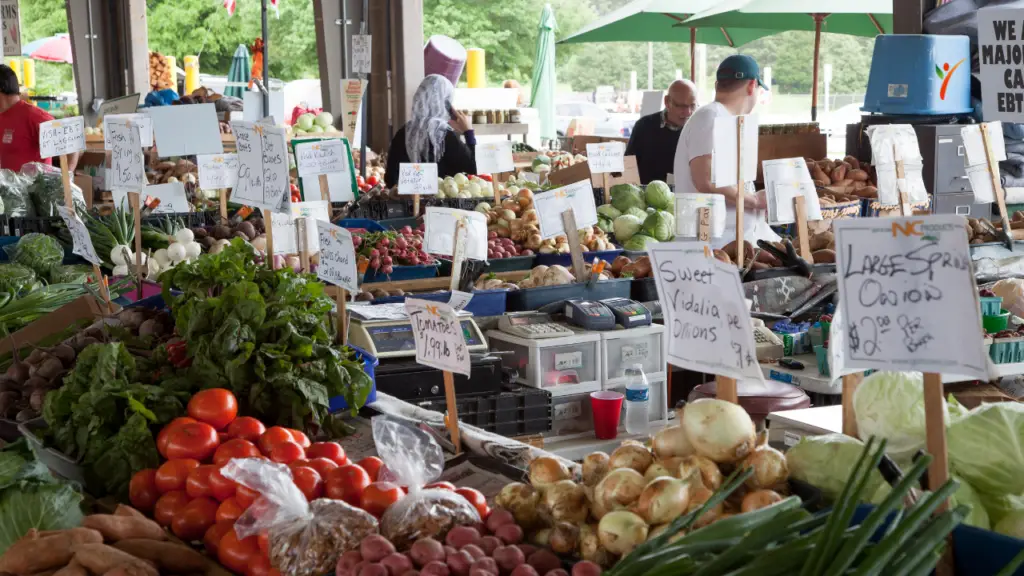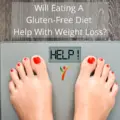Are you on a diet? If you said no, then you belong to the minority group of a present generation because if one looks around, eating a specific diet is due to a trend. But not everybody, a few people are on a diet because their body doesn't accept all kinds of food. There is even a diet called the “Cigarette diet” (You heard it right). From years ago, that became a popular trend! GASP!
One cannot discuss ALL the different diets in one article. So it's better to stick to one and our chief diet of honor.
Focusing on a Gluten-free diet, we'll help you address: Is A Gluten-Free Diet Expensive?

Before diving right into the topic, let's first get an idea of the diet. Beginning with, what exactly is gluten?
It is a type of protein found in wheat, rye, and barley. This protein is the glue that keeps the food product intact. Below are some products that have gluten:
- Barley
- Bulgur
- Semolina
- Wheat
- Starch
- Durum
- Cookies
- Crackers
- Triticale
These are just a few.
Gluten-Free Diet
As mentioned above, not everybody chooses to be on a diet, and few have no choice. People who have celiac disease are one of them who can't eat food with gluten. If their diet has gluten protein, it can cause harmful damage to their intestines, which can lead to decreased absorption of essential nutrients.
Anyone who has celiac disease needs to be very careful. Being negligent can lead to various health issues. Anemia, iron deficiency, folate, and Vitamin B12 deficiency are on the top of the list.
Apart from the people who have celiac disease, others prefer gluten-free products.
Some think that this is a step towards a healthy lifestyle. Others follow the diet inspired by celebrities and athletes. Whatever the reason be a gluten-free diet is a popular diet.

If you are also following the gluten-free diet, you have to be even more attentive at the grocery store. Always check the ingredients in packaged food. Before getting into packed food, let's look into the naturally gluten-free food:
- Fruits
- Vegetables
- Beans and nuts
- Fish and poultry
- Low-fat dairy products
- Eggs
Grains and flour that are gluten-free:
- Potato and bean flours
- Soy
- Quinoa
- Corn Flax
- Arrowroot
The Necessity of a Gluten-Free Diet

By now, we are sure you have an idea of the pros and cons of a gluten-free diet. You're right. It's not an easy road to walk. Still, let's not forget the saying, “No pain, No Gain,” and giving up wheat can be more painful than doing squats.
So, if you are adamant about going all gluten-free, below are few things you should expect; when you begin your diet:
Constipation:
The first food to vanish off your plate is bread and pasta. If you eat it frequently, ditching it all together can make your digestive system go a little haywire. But to avoid this issue increase the intake of leafy greens and legumes in your diet.
Hunger:
Once we cut wheat and barley out of our diet, there are chances that one might feel hungrier. That is a good sign, and now you can make better and healthier food choices for your body.
Brain Fog:
Scientists believe that people who suffer from “Brain Fog.” That means they feel sluggish or indolent most of the day; the feeling connects to the diet and food intake. And by choosing gluten-free products, one can make that brain fog go away.
Withdrawal Symptoms:
Many believe, people who visit the stop eating gluten will suffer withdrawal symptoms. This is not true. When you cut something significant from your diet, you might feel nausea, headache, and fatigue. You may be able to handle them better by drinking water and eating leafy vegetables.
Energy levels:
With gluten products in one's diet, the body needs extra energy to digest them. Once you go gluten-free, the strain on your gut decreases. Then you can use the excess energy in more productive channels.
Weight:
Once you go gluten-free, you may experience a significant change in your weight. Choosing fruits and vegetables will make your body much healthier.
Now that we know the benefits of gluten-free diets, let's talk about the question at hand. Is a gluten-free diet expensive?
Simply put, it can be. A gluten-free diet will increase your grocery budget when you purchase more organic fruits and vegetables than you have been before eating a gluten-free diet.
If you are smart and eat fruits and vegetables in season or buy in bulk when products are on sale, you will not see a massive increase in your grocery bills.
Going Gluten-Free

The few tips to remember when choosing a gluten-free diet is to shop on sale. Also, using coupons when they are available.
Getting familiar with the new diet will take a significant amount of time. It is a change in your eating and your purchasing of food.
Without wasting any more time, let's read how to strategize a gluten-free diet without spending 80% of your salary on gluten-free products:
Financial And Physical Cost
Let's make one thing clear that gluten isn't harmful per se. But some people suffer from digestive issues making it a requirement.
There isn't much choice for them, but if you're choosing the diet willingly and on a strict budget, there is no sense going on a diet without mental peace.
Even with making smart choices, it's a fact that the products you buy now will be on the pricier side compared to the diet that includes gluten.
Mainstream Food Products
This is the shortcut to a gluten-free diet. In the first phase, one should add some familiar food products that are gluten-free. When used to the diet, then one can begin to experiment.
You can start by looking for gluten-free cereal. These are available at grocery stores, and any food product packaging that shows a “gluten-free label is what you should look out for.”
Then one can look into potato or corn chips that are gluten-free. If you're lucky, you may lay your hands-on gluten-free crackers and tortilla chips. Then some yogurts are gluten-free, although one has to read the ingredients. Just remember that all these packaged foods are not healthy and contain preservatives, and the best thing to eat is fresh fruit and vegetables. On a diet with mainstream food, you need to be cognitive about eating unhealthy foods that appear healthy sold in the grocery store.

Coupons Are Your Best Friend
We know some people love coupons, and then some people hate the idea of collecting coupons. If you don't, then you might want to think about the benefits again. The food coupons can save you a load of money. With digital coupons being more prevalent today, it makes it a lot easier. Several sites provide gluten-free coupons. You can get them quickly by following a few simple steps. Also, a few manufacturers may offer a special coupon for subscribing to their website.
Naturally Gluten-Free Products
If you're on a gluten-free diet, forget the cheap spaghetti you buy from the store or other gluten products to make a quick dinner.
You'll have to be much more attentive and plan. Instead of buying gluten-free products such as spaghetti, switch to naturally gluten-free products.
Try including fresh vegetables and fruits. This will help you continue the gluten-free diet in the long run. It won't have any adverse effects on your health or weight. Also, try adding fish, poultry, and meat, and dairy items to your diet if able.
These products, as mentioned above, are easy to find, and they are delicious. This will help you get the best diet without scratching your heads over reading every ingredient mentioned in the packaging.
Buying whole foods is much cheaper than gluten-free products and better for you too. For instance, purchasing a 10-pound sack of gluten-free flour is 15 times less expensive than ten loaves of gluten-free bread.

Farmer's Market
If you look at your local supermarket and make a comparison between gluten products and gluten-free products, you'll be astonished.
It's funny that gluten-free products have more expensive ingredients.
The solution to this issue is to buy foods at a supermarket. And also at the farmer's market when they are open during the season. Buying gluten-free products in bulk make them even cheaper.
Also, the quality of food you can purchase at the farmer's market is better than that of a supermarket.
If it's the winter season, stock up on products in bulk and freeze them for future use. Also, this is time-saving; you don't need to wander around the supermarket.
Another advantage of buying at a farmer's stand is the issue of gluten-free cross-contamination. The chance of problems at the farmer's market is far lesser than at the supermarket, which is a fact. The vegetables are very cheap at the farmer's market, and the choices are many.
Make Your Products
A gluten-free diet is getting popular but not so popular that you might find alternatives to every product. There are a few unique ingredients that you might want while cooking or baking. But you cannot add them as they have gluten in them.
But there is an option to save from this hassle by making your products.
For example, prepare gluten-free mayonnaise. It is the heart of every sandwich and many other dishes, but gluten-free mayo is hard to find. So, you can whip up mayo at home; with a few easy steps to follow.
If you can't find a product, try making that product, this might sound laborsome and burdensome. However, it might come to your surprise that many of these products are very easy to make. When you make them at home, you know for sure there isn't any gluten in them or preservatives that you shouldn't be consuming.
Final Words

We know that going on a gluten-free diet can be a challenge at first. You have to try hard for six months to get familiar with the whole diet, especially if you're looking to be eating the diet for the long run.
No one can calculate the exact amount of how expensive is a gluten-free diet?
The same varies from person to person. Once you get hold of the food you are comfortable with and make a diet chart, follow it religiously.
Within 3-4 months, you'll be accustomed to the food that's best for you. You won't need to spend hours at grocery stores looking at every ingredient written on the packaging.
Choosing to go gluten-free is a step towards a healthy lifestyle. It is a slightly expensive yet beneficial choice.
And if you're a person who has celiac disease or a gluten allergy, then you don't have much of an option. Remember that there is no harm in giving up food that has the potential to damage your intestines and make you sick.
There also might be some changes in how you feel at the beginning. It is due to the complete withdrawal of gluten. Make sure to eat plenty of fruits and vegetables and dairy products, if able. The symptoms are different with everyone but always give time to every diet.
This article was about is eating a gluten-free diet expensive? We can safely say the answer is not necessarily. With the right choices and smart decisions, you can manage to have money at the month end for other essential things in life. Enjoy eating a gluten-free diet and feeling healthier than ever.





1 thought on “Is Eating A Gluten-Free Diet Expensive?”
Comments are closed.